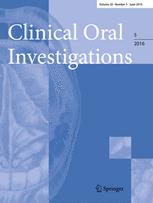 An article on how missing teeth affect chewing was — well, pulled — when someone noticed a few errors. The journal later published a corrected version.
An article on how missing teeth affect chewing was — well, pulled — when someone noticed a few errors. The journal later published a corrected version.
The retraction for “Chewing ability in an adult Chinese population” appeared in Clinical Oral Investigations in 2012, but we’re sharing it with you now because the notice contains some remarkable language:
This article has been withdrawn due to wrong content with serious consequences such as danger to people’s health.
Last author Nico H.J. Creugers, who works at Radboud University Medical Center in the Netherlands, told us:
This paper was retracted because there has been a data interpretation error detected during the publication phase (after acceptance, just before publication). According to the editor this could only be solved by retracting the paper. The new (and correct) report of this study was published in the same journal somewhat later as: Zhang Q, Witter DJ, Bronkhorst EM, Creugers NHJ. Chewing ability in an urban and rural population over 40 years in Shandong Province, China. Clin Oral Investig 17: 1425-1435, 2013.
The text saying that the paper was pulled out because it posed a danger to patients is I think a standard etc added by Springer.
The specific text is unique to that notice. We ran Creugers’s claim by a spokesperson for Springer, who said that she:
could not find any evidence that such a standard disclaimer exists. Each retraction is decided and written on a case-by-case basis.
The spokesperson added that she did not have information on what the danger to patients might be.
Creugers said:
Well, we did not add this sentence. Moreover, I don’t think the results would cause any damage.
We asked Creugers what the “wrong content” was, and if it affected the conclusion:
No, the conclusions were not changed. The Numbers in one of the [tables] were not in agreement with those in one of the figures.
Per the new paper, that conclusion is:
Chewing ability was strongly associated with dental conditions.
And:
The presence of at least 10 teeth in each jaw had highest impact on chewing ability.
We have seen health concerns prompt other retractions. Some cases are clear cut, so to speak: An editor pulled a paper on a method of heart surgery after it came to light that the author had not received ethics approval, and in fact had been asked to stop using the technique described in the paper. Other papers are retracted to err on the side of caution: A father-son research team disagreed about whether clinicians could harm patients if they used their paper on a laser therapy as the basis for treatment, so the editors retracted it.
This isn’t the first journal to retract and republish a problematic paper — JAMA Psychiatry has done so twice, for a paper on gamma rays in OCD and another on depression that had “a number of pervasive errors.”
Like Retraction Watch? Consider making a tax-deductible contribution to support our growth. You can also follow us on Twitter, like us on Facebook, add us to your RSS reader, sign up on our homepage for an email every time there’s a new post, or subscribe to our new daily digest. Click here to review our Comments Policy. For a sneak peek at what we’re working on, click here.